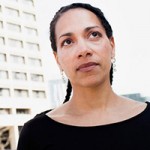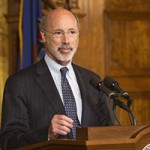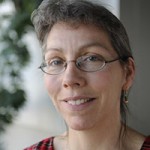Human Factor: Insights from Social Science, Arts, and Humanities
-
-
slice.mit.edu
Filed Under
Recommended
The Human Factor shares interviews with the School of Humanities, Arts, and Social Sciences (SHASS) faculty and graduates, online stories that broaden the understanding of global issues through the lens of political, cultural, and economic disciplines.
SHASS is influential on campus and off–some 25 percent of each undergraduate student’s required courses fall within its domain. The school is home to high-impact disciplines such as the world's top-ranked graduate economics department and its Abdul Latif Jameel Poverty Action Lab, which has improved poverty programs by measuring their impact scientifically. The Comparative Media Studies/Writing is home to digital media creators and Pulitzer-prize winning authors. The Music program, populated with leading composers, offers a a conservatory-level track plus a cornucopia of performance opportunities.
Dip into the Human Factor with these excerpts:

Anthropologist Erica Caple James on Medical Humanities The associate professor of anthropology describes how culture and behavior impact illness, treatment, and health outcomes
“As a medical and psychiatric anthropologist, I study historical and cross-cultural understanding of illness, healing, and bodily experience as they are inflected by power inequalities, health and healthcare disparities, changing conceptions of race and gender, and political and economic insecurities…
Q: What economic, political, and cultural issues do you think most need to be addressed to make progress toward MIT’s global health care goals?
“The most significant challenges to global health are actually conditions that are largely lifestyle or ‘behaviorally driven’ diseases in contexts where everyday life is insecure. In developing contexts, lack of access to affordable pharmaceuticals and medical technologies, medical infrastructures weakened by political conflict and legacies of colonial and authoritarian regimes, and insufficient medical personnel, remain significant components of any quest to improve health and reduce the cost of care, especially for the poorest.”

Interview with Pennsylvania Governor Tom Wolf PhD '81
The governor, who studied political science at MIT, sees a key role for his discipline in solving global issues
"The search for the answers to society’s most pressing questions always involves a political science dimension. Politics is above all a very practical discipline. It’s the art of figuring out what you want to do, how you’re going to do it, and how you’re going to convince others to go along with what you want to do. By the way, that’s pretty much how the world as a whole works."
Q: In your view, what are the unique advantages of studying political science at MIT? “The Institute is famous for its pragmatic problem-solving vision, and at MIT, I learned how to view politics through a pragmatic lens. It taught me to rely less on dogma, ideology, cant, or pure theory in trying to understand real-world political processes. To a certain extent, this was consistent with MIT’s practical academic culture, built as it was on a foundation of engineering and science. This is also one of the reasons why public policy studies was — and maybe still is — such a big part of the political science curriculum….”

Economic Historian Anne McCants on Innovation and Opportunity
The professor of history describes the impact of poverty.
Q: What economic, sociopolitical, or cultural issues do you think most need to be addressed to make progress toward the global economic goals MIT has identified?
"We would go a long way to addressing our goals if we put a real priority on child homelessness, child hunger, child exposure to environmental toxins, child poverty, the emotional neglect (or worse) of children, and prenatal and childhood access to preventive health care.
"We fret endlessly (as we well might) about the quality of our schools and admission to and curriculum in our universities. Yet we too rarely talk about the damage that social exclusion and economic inequality intermingled with absolute poverty do before children come anywhere near such institutions."







